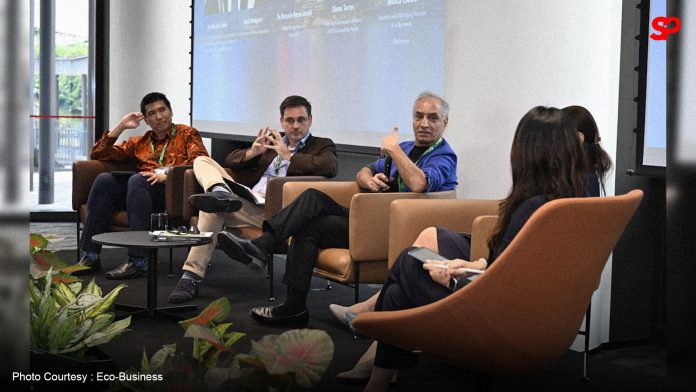By Matthew Go
Ahead of the United Nations’ COP29 climate negotiations in Azerbaijan, the Cities: Possibilities 2024 forum in Singapore underscored the urgent need for public-private partnerships to accelerate climate finance and support resilient urban planning. Hosted by Eco-Business in collaboration with CapitaLand Group, Asia’s leading real estate company, the forum brought together policymakers, financiers, and experts to highlight successful case studies and sustainable investment trends shaping the built environment.
CapitaLand CEO Jonathan Yap kicked off the event, announcing the launch of the fourth CapitaLand Sustainability X Challenge (CSXC), which aims to attract global solutions for sustainable urban development. He reaffirmed CapitaLand’s dedication to climate targets, including a 46% reduction in Scope 1 and 2 emissions by 2030, alongside efforts to integrate renewable energy and reduce waste intensity across operations.
IFC Climate Business Group’s Prashant Kapoor emphasized the importance of scaling finance for green infrastructure, highlighting the need for long-term urban adaptation plans. Kapoor stressed that “many green buildings don’t make a green city,” pointing to the need for political commitment and community engagement.
Jessica Cheam, Eco-Business Founder, echoed the call for alignment between local initiatives and global climate goals, noting that cities are responsible for 70% of global CO₂ emissions. Cheam underscored the necessity for both local and international actions, stressing that an estimated $30 trillion will be needed to decarbonize cities by 2030.
The forum included panels on decarbonization, green financing, and emerging sustainable real estate trends. Discussions covered CapitaLand’s 2030 Sustainability Master Plan, which details commitments to net zero emissions by 2050 and increased renewable energy targets, as outlined by CapitaLand Investment’s Sustainability Officer Vinamra Srivastava. The event concluded with calls for enhanced regulation, financing, and public trust to facilitate the transition to regenerative urban models.
With about 350 participants, both in-person and virtual, Cities: Possibilities provided a crucial platform for driving sustainable urban transformation across Asia.

